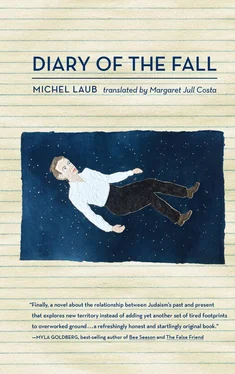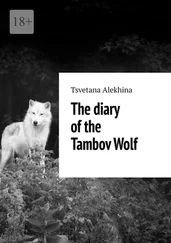5.
Our family had a house on the beach. It was a big house. Four bedrooms, sitting room, a spacious verandah. A big lawn out front. Most families went to the beach in the morning at around nine o’clock and returned at around one or two o’clock. No one had lunch on the beach. There were no kiosks or people selling popcorn. There was no suntan lotion and the water was much cleaner .
6.
My father has always liked to swim. In the summer, he’d invite me to go for a stroll with him in the late afternoon. It’s easy to walk on the firm sand, which feels hard and somehow healthy for your feet, toughening them up. We used to count the number of lifeguard posts, ten there and ten back, then have a swim near where our street met the beach, the warm water and your body being carried gently along by the current, you close your eyes and breathe out when the wave passes. You can feel your muscles when you start swimming crawl or breaststroke, my father breathing more loudly than me, it’s very still after a wave has broken and you can see the sand and the light on the lifeguard post opposite the dunes and next to the patch of grass where a thin, weary horse is grazing, my father looks thin and weary too and his wet hair is slick against his head, the skin on his lips puckered, but he’s smiling and says in a clear voice that it’s been a good day and it’s time to go back.
7.
Back at the house, my father has a shower and then I have a shower after him, and when I come out he’s already preparing the fire, and I sit down beside him and that’s when we have our chat by the barbecue: he starts telling me about his technique of heating up the coals from underneath, like a pyramid in which, in the midst of all that blackness, you can make out a few glowing red spots that gradually multiply. At that point you add more coal and expose the center, which is now the kind of red-hot heat that won’t flare up when any fat drips onto it, and then he starts talking about the car and the road and the unpaved street, about the faulty electricity meter on the wall and the guttering that needs mending, and that’s when he asks about the brothel, and I tell him everything and I can see the expression of relief on his face, the look of trust that instantly defuses all the doubt and anxiety that had been there at the start, because I’d never known my father to talk so much about so many things as on that night.
8.
After I answer his questions about the brothel, my father tells me that it had been pretty much like that in his day too, a lady he never saw again and whose name he couldn’t remember.
9.
My father told me about the women he’d gone out with before he met my mother, one was studying architecture and another was from a family who lived close by, but he didn’t describe what they looked like, their hair, skin, height, and as far as I know he never spoke to any of them again.
10.
My father told me that this was a special time for me. Then he asked about senior school and if I’d given any thought to what I’d like to study at university, but that I shouldn’t be in a hurry and he would support me in whatever choice I made, and that I should focus on what I really wanted to study and not worry about money or about whether the entrance exam was easy or difficult or about what characters in TV soaps or in the ads had to say.
11.
It’s a good moment to start thinking about these decisions, he said. My father was worried because I would be changing schools for a second time. It was the end of the second semester of the eighth grade, heralding another period of interviews, evaluations and tests. I could have gone to a school run by Marists, Baptists, Buddhists, Jesuits, Pentecostalists or Umbandistas, Mormons or Seventh-Day Adventists, but at that point my father wasn’t interested in the school’s religious orientation or teaching methods. This time, he wanted to know why I was so keen to change schools yet again. It was easy enough to come up with the excuses he wanted to hear, telling him that the teachers were weak and favored rote learning, that the head teacher was too rigid and that I didn’t really hit it off with my classmates, because this was better than telling him about the notes and the drawings, about João’s mother and my grandfather.
12.
To talk about João’s mother and about my grandfather today is to return to all the references I absorbed over the years, the films, the photographs, the documents, the first time I read If This Is a Man and felt there was really nothing more to be said on the subject. I don’t know how many of those who did write about it had read the book, but I doubt that any of those texts contain anything that Primo Levi had not said already. Adorno wrote that there could be no more poetry after Auschwitz, Yehuda Amichai wrote that there could be no more theology after Auschwitz, Hannah Arendt wrote that Auschwitz revealed the existence of a particular kind of evil, and then there are the books by Bruno Bettelheim, Victor Klemperer, Viktor Frankl, Paul Celan, Aharon Appelfeld, Ruth Klüger, Anne Frank, Elie Wiesel, Imre Kertész, Art Spiegelman and so many, many others, but in a way they couldn’t go beyond what Primo Levi says about his companions in the hut, those who stood in the same line, those who shared the same mug, those who set off into the dark night of 1945 where more than twenty thousand people disappeared without trace on the day before the camp was liberated.
13.
To talk about João’s mother and about my grandfather today is to distort the story by imposing on it an entirely phoney logic, rhetoric and rhythm, like trying to impress an audience by leaving the cruelest, most shocking, most violent scenes until last, the ones that arouse the strongest feelings of identification and pity just before the moment of catharsis, and with time and experience and repeated readings of If This Is a Man you learn to do that really well and to reproduce those feelings without really suffering, because you exhaust that suffering the first or second or third time you describe the atrocities, using the grave voice you’ve learned to put on when you say that a million and a half adults arrived at Auschwitz, and started to work and sleep and eat under the camp’s regime, and it’s worth adding that within a few months those adults weighed something like fifty kilos, or forty, or thirty, and that the camp officials took each and every one of those million and a half adults weighing thirty kilos, and escorted each and every one of those million and a half adults weighing thirty kilos, and opened the door of the gas chamber to each and every one of those million and a half adults weighing thirty kilos, and turned the tap that filled the chamber with gas where each and every one of those million and a half adults was waiting, you can repeat this ad nauseam because you’re never going to feel what you felt when you were fourteen, when you came home after writing the last of those notes about João’s mother and receiving the last of the notes containing a drawing of Hitler, and went into your room and sat down on the bed and for the first time had some notion of what it all meant.
14.
I spent the second semester of the eighth grade at home, not seeing a single friend on the weekend, and although my father never said anything I think he knew about the bottles of whisky in the cupboard: he couldn’t fail to notice the level slowly going down, a little lower on Friday, still lower on Saturday, and sometimes during the week as well, and it would be somewhat ridiculous to say that I was doing this only because of João’s mother and my grandfather, although there’s no denying their influence on my behavior, me sitting on the bed in my room, knowing I would never again write those notes and never again receive one, and that I would never again speak to João and he would never again speak to me, and that in some way this was one effect of what had happened to his mother and to my grandfather.
Читать дальше












